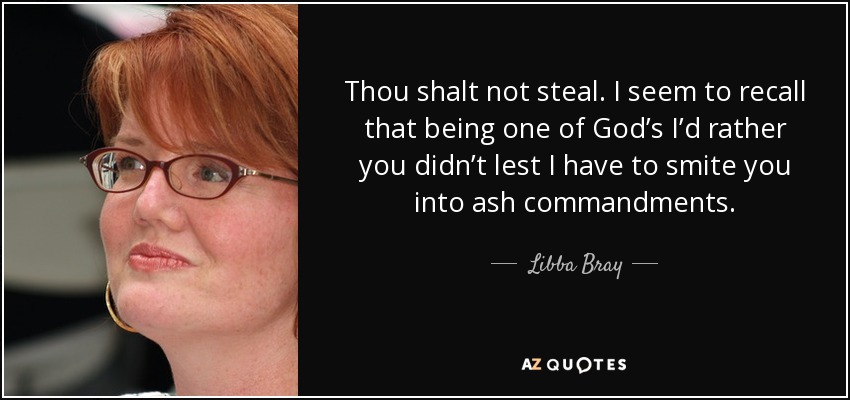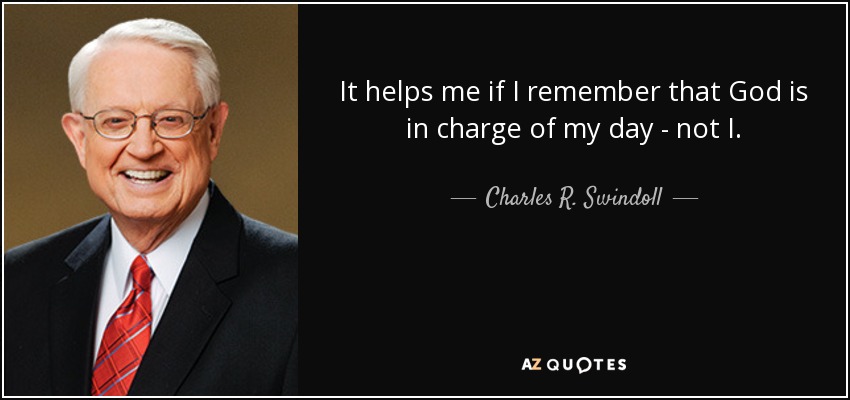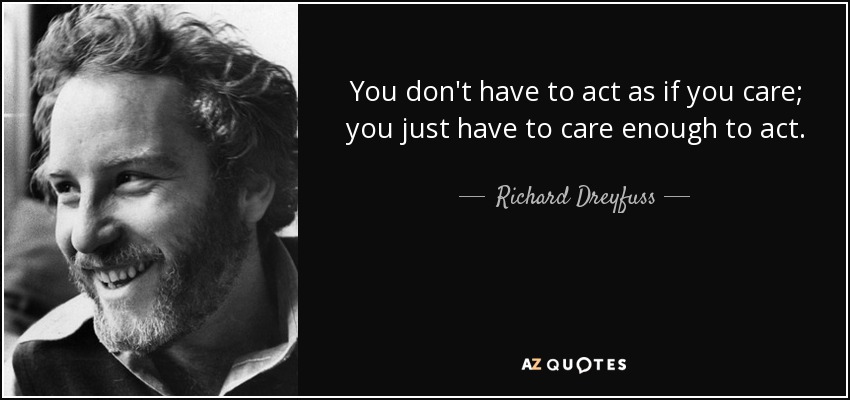Click here to return to Blog Post Intro

As Dr. Laufer (pictured above) put it, “The Ten Commandments—or ten words—served as principles of living for God’s people from the wilderness all the way to the early church and beyond. Far from being old laws that no longer apply to the church, we will see that the Commandments represent the simplest explanation of what it means to love God and love your neighbor, as well as a broad enough explanation to potentially speak to every area of the Christian’s life. While specific applications change with time and place, the principles themselves clearly define what it means to follow the way. This is what it means to live the Christian life.”
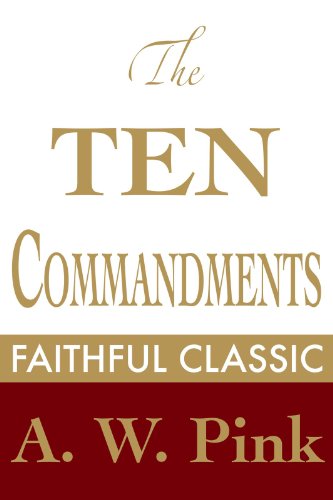
In The Ten Commandments, Arthur W. Pink points out that Exodus 19 reveals how people were commanded to spend two days in preparing themselves by a typical cleansing from all external pollution before they were ready to stand in the presence of God. Therefore, we need serious preparation of heart and mind before we come to wait before God and receive a word at His mouth. The Ten Words, and they alone, reveal the only righteousness which is acceptable to God, and at the same time discover to us our unrighteousness. The rest of the Scriptures are but a commentary on the Ten Commandments, either exciting us to obedience by arguments, alluring us by promises, restraining us from transgressions by threatenings, or spurring us to the one and withholding us from the other by examples recorded in the historical portions. Rightly understood, the precepts of the New Testament are but explications, amplifications, and applications of the Ten Commandments.

Rick Shepherd’s Bible Study on The Ten Commandments notes, “The Ten Commandments are ten truths intricately woven through the Scriptures, God’s revelation of His will for man… They are more than Ten Standards or Ten Steps or Ten Hurdles or Ten Goals or Ten Rules. They are Ten Facets of the heart of God meant to be lived out in relationship with family, friends, neighbors, classmates, and fellow workers. They are living truths for today… God never meant the Law to act as a prison that keeps us from what we want. Instead, he meant for His word to lead us to all that truly satisfies and brings joy. Like guardrails on a beautiful mountain road, the Law guides and protects us along the roadway of life… The Law was a guideline for personal relationships, first with God and then with man. God wanted His people to love Him fully from the heart and to love one another.”
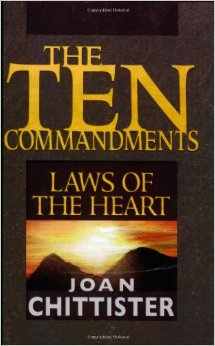
Joan Chittister observes that The Ten Commandments are laws of the heart, intended to lead to the fullness of life, not simply to the well-ordered life. The Decalogue — “the ten words” – were designed to make the twelve tribes of Israel a different kind of people. They are words about praise, human responsibility, justice, creation, the value of life, the nature of relationships, honesty, veracity, desire, and simplicity of life.
-
THE LAW OF REFLECTION
I, the Lord, am your God, you shall not have other gods besides me. —Exodus 20:3
Like all of us, the Hebrew people grew over the centuries in their understanding, both of themselves and of God. Over time, “the ten words” begin to be enlarged, developed, defined, and explained.
In Jewish tradition, unlike Catholic and Lutheran texts, “I, the Lord, am your God” and “You shall not have other gods besides me” are two separate commands. The first, Judaism teaches, recognizes the Oneness, the monotheistic character, of God. The second statement, Judaism insists, forbids the making of material images of God as if God can be “embodied,” pinned down, identified as a white male, for instance.
Israel always recognized Yahweh as the greatest of the gods, for instance, but the notion that there was only one God grows only slowly in Hebrew consciousness. All of us have more than one god, if only we could ever admit it. It is so easy to criticize the gods of the other, to practice a kind of ecclesiastical imperialism and think ourselves faithful to the first commandment. But that is light years away from an understanding of the God of All.
For the sake of the God in which we say we believe, we do very ungodlike things to people whose color is different than ours, whose language is different than ours, whose gender is different than ours. We make our nations, our race, and our sex God and in the doing of it, make our religions irreligious and our God puny.
The first commandment prods us to examine again and again what it is that we have put before God in our lives, what it is we have made our gods instead. This is the commandment that decides the orientation of our whole lives. This one asks us who or what we are making God now.
-
THE LAW OF RESPECT
You shall not take the name of the Lord, your God, in vain. —Exodus 20:7
To all ancient peoples, names had meaning, names had power. When Moses asks God, “What is your name?” the question is charged with meaning. And so is the answer. God answers, “My name is I am who am.” I am Being. I am Life. I am Creator. No wonder there is a commandment about taking God’s name “in vain.” To insult the Creator of the universe must be high-level moral madness.
The second commandment — “You shall not take the name of the Lord, your God, in vain” — may be more the sin of the pious than the sin of the sinner. We normally concentrate on “the Lord’s name” and ignore “in vain” entirely. As a result, we may have missed the point of the commandment entirely: it’s not so much using God’s name that is wrong as it is that we invoke the name of God to justify ungodly things.
We have learned to take God’s name “in vain” quite well. We use God’s name to prove our piety. We quote scripture at people and expect that the discussion is over, that when we have spoken, God has spoken.
-
THE LAW OF REMEMBRANCE
Remember to keep holy the Sabbath day. —Exodus 20:8
Sabbath is not a day of “rest” because people are tired. It is a day of rest because people are human and ought not to be driven to death, because every living thing requires time to renew itself, if not physically, certainly spiritually; if not spiritually, at least physically.
Sabbath says that we must take the time to remember that we came from God and to determine what we are doing daily in the process of returning there. Sabbath says that we have forgotten who we are — that we are humans, that we are “made in the image of God” — so we have, of course, forgotten who the other is as well.
Jesus, scripture is clear, kept the Jewish Sabbath. But Christians, as time went by, found themselves further and further from the synagogue.
Sabbath says everything all the grandmothers of an earlier age were trying to teach us: be still, be thoughtful, be contented, be gentle with the world and you will become everything you were ever meant to be.
Jewish teachings provided three reasons for keeping the Sabbath:
- Given the fact that no one is permitted to do anything, no orders could be given, no work done. Therefore, the slaves and the rich would be equal for at least one day a week.
- We have time to reflect on the meaning of our lives.
- We can reflect on the goodness of our work as God did on creation on the seventh day.
Surely the real sin to which the third commandment points is not the sin of not going to church on Sunday. It is the sin of not seriously seeking God.
The world has lost a Sabbath mentality. Now Sunday is not about “keeping holy the Lord’s day”; it’s about catching up on what we didn’t get finished on the weekdays before it. We have made the Sabbath one more thing on the schedule rather than a celebration of those moments in life that transcend the schedule and free us from the slavery of schedule.
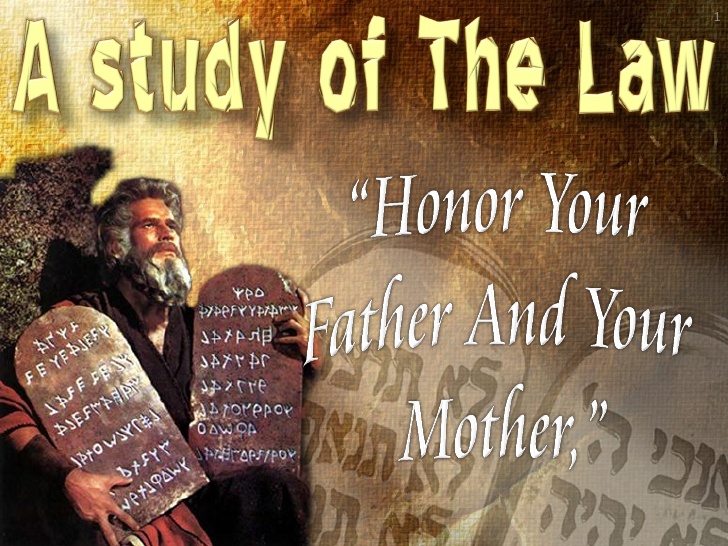
-
THE LAW OF CARING
Honor your father and your mother. —Exodus 20:12
The fourth commandment builds perspective into the human race, asking us to look at the way we care for those who, having gone before us, show us the way. It reminds us, at the same time, of our own debt to generations to come. This commandment demands that we respect the past. It keeps us in touch with our roots and reminds us of our responsibility to the future.
As the Native Americans say: no decision should be made without considering its effect up to the seventh generation.
The fourth commandment is not simply about children. Nor is it only about “parents,” in the strict biological sense of the word. This commandment is about cherishing the gift of human relationships. The first three commandments deal with reverence for God. The last six deal with justice among people. Only the fourth deals with relationships of love, the commandment to care.
-
THE LAW OF LIFE
You shall not kill. —Exodus 20:13
The fifth commandment, the word of life, calls us to remember how thin a line we tread between potency and power, between power and force. In our own century, the questions are more pointed and divisive. Some Christian groups call abortion “murder,” but Jewish groups do not. Some people call war “justified,” but some Christian groups do not. Some people call capital punishment a “deterrent,” but others call it barbarous.
The problem introduced by the fifth commandment rests on the continually developing Jewish interpretation of it. The issue has always revolved around a matter of translation. The question is whether or not the fifth commandment is “You shall not kill” or “You shall not murder.” The distinction is determinative. “Kill” in Hebrew is a comprehensive term that includes the taking of life for all reasons and in all forms. “Murder” in Hebrew refers only to criminal acts of killing.
Of all the commandments, it’s the one we keep least carefully, most cavalierly. We make up reasons all the time to kill: we kill to preserve the state; we kill to protect the self; we kill to punish wrongdoers — a silly concept if ever there was one.
Maybe it’s time to realize that when we are not actively working to sustain life, all life anywhere, we are actually undermining life everywhere. “You shall not kill” must become “You shall enable life” before it’s too late for the entire globe. Life is the only thing of value we really have.
The greatest sin against the fifth commandment, “You shall not kill,” may be indifference to what is going on that is sapping life out of the world around us.
-
THE LAW OF COMMITMENT
You shall not commit adultery. —Exodus 20:14
In biblical law, the idea of adultery is very different for men than for women. In the first place, where men were concerned, adultery had nothing whatsoever to do with monogamy. On the contrary, according to biblical law, polygyny, the right for a man to have more than one wife, was taken for granted. Wives and children were a measure of his wealth, a promise of his future security.
Adultery, then, had nothing to do with a man’s having sexual relations with multiple wives or unmarried women. It had something do with having sexual relations with another man’s wife. Another man’s property. Wives were owned, not simply “married.” They were for assuring the lines of inheritance and the lineage of the clan.
An adulterous woman, on the other hand, was a married woman who had sexual relations with any man, married or single, not her husband. She would be punished, divorced, or even stoned to death. Polyandry — the taking of more than one husband — was absolutely forbidden. Sex, it seems, was, by and large, a woman’s sin.
The word implied by the sixth commandment in this age, it seems, is commitment. In an age that is less and less stable about anything, feels less and less responsible for anything beyond the present, marriage is one of the few institutions based on perpetuity. On singleness of heart. On mutual trust. Everything else in modern life is a movable feast.
“You shall not commit adultery” is the word that calls us to truly care about the people we say we love—those to whom we commit our lives, entrust our futures, and share our selves so that both we and they can grow into fully loving people. Adultery is when we take someone else’s life and love, use them up, and then go on our own way “managing without them.” It’s not love at all: it’s exploitation.
We treat the sixth commandment as if it were about physical misbehavior. But that may be the least of the problem. The sixth commandment is about integrity of heart, about loving people more spiritually than we insist on loving them physically. Adultery is the state of using people for personal physical satisfaction, without intention of commitment, without being willing to die in their place. Sometimes the “other person” is a job or a desired promotion or an obsession or a hobby. It’s not always sex. And those things can be much more difficult to deal with than sex because that kind of immorality always feels so moral.
-
THE LAW OF SHARING
You shall not steal. —Exodus 20:15
The Hebrew concept of stealing as it was heard by a nomadic, rural, pastoral clan was far different from the way we read it today. We presume that the function of criminal law is to protect the property of the rich from the greed of the poor. Israel, on the other hand, presumed that the function of this commandment was to protect the common property of the clan — the water well, the grazing land, the sheep — from being expropriated by the individual for the sake of personal profit.
Israel wrote laws, not to protect the rich from the poor but to protect the poor from being exploited by the rich. To waste food, to give in to conspicuous consumption by throwing away something that still has value in order simply to get a new one, is stealing from those who have need of such things but can’t possibly afford to get them for themselves.
Stealing, in the biblical sense, then, is not so much a private or personal sin as it is a social sin. To take what we do not need, to destroy what is useful to another, to deprive those in the community of their basic needs is stealing.
Stealing has become the order of the day in a world bulging with wealth and teeming with the poor at the same time.
“You shall not steal” has been reduced to mean no shoplifting, no pilfering, no pickpockets, no burglary, no petty theft. But the stealing the Decalogue really has in mind, is really concerned about, has actually become the sin of rich people, powerful people, people in a position to say “take it or leave it” to those who seek a living wage or subsidized housing or medical benefits and pensions. Stealing is not about things. Stealing is about relationships.
There is another kind of stealing we don’t talk about. This kind involves having more than we need and giving nothing to those who don’t have anything. This kind steals by consuming, controlling, hoarding all the goods of the earth for oneself. We call it “rugged individualism.” Don’t be fooled: it’s spiritual gluttony.
“You shall not steal” really means, “You shall keep your integrity.” When we cheat and steal we lose a great deal more of ourselves than we can possibly gain. We say poverty leads to stealing; the Iraqis say stealing leads to poverty.
-
THE LAW OF SPEECH
You shall not bear false witness against your neighbor. —Exodus 20:16
The eighth commandment — “You shall not bear false witness against your neighbor” — has two historical dimensions to it:
- The first refers simply and directly to the legal system — to those who give “witness” in a court of law. In fact, such laws were common to all the major cultures of the Middle East. This level of witness demands a commitment to factual truth.
- The second refers to speech as a sacred act. Saying only part of the truth or not saying the crucial part of the truth is all the same.
“What is obviously not the truth is obviously not a lie.” But if someone gains unjustly by the lying, then we have besmirched creation, we have profaned the self.
The eighth word of the Decalogue is honesty. It is the glue of the human race. My father taught me, “Always tell the truth. Never lie. It’s not worth what it does to you when you’re found out.”
While stealing takes from someone something that they have, lying takes from people what they are: their reputation, their understanding, the quality of their lives. And the really interesting thing is that it takes those things from the one who lies as well as from the one who is lied about.
“You shall not lie” is the spiritual mandate that is meant to save a great deal more than our reputations. It is a commandment meant to preserve an entire people from the cancer of mistrust, the individual from the pitfalls of pride, and the society from living with the corrosive effects of a culture of deceit.
-
THE LAW OF SELF-CONTROL
You shall not covet your neighbor’s wife. —Exodus 20:17
Jewish law — and most of mainline Protestantism — treats as one and the same command what Roman Catholics and Lutherans call the ninth and tenth commandments. You shall not covet either the neighbor’s wife or the neighbor’s property.
The point is that though the ninth and tenth commandments treat of two different areas of life — of lust and greed — they both speak, at base, of “covetousness,” of wanting what we should not, cannot, have.
It is not “lusting in your heart.” It is failing to be satisfied. Covetousness is the spiritual disease of unbridled desire. It is the inability to be at peace with the self, with life, with necessities.
Covetousness — that raw, ruthless need to have what I want, get everything I can, outdo everyone I meet — consumes me and leaves me raging and restive once more. Of all the commandments that are ignored, overlooked, or considered least useful, the ninth may rank most meaningless of all. Ironically enough, in this day and age, in this society, it may be most needed.
This commandment is about lust, about the insatiable need not simply to have more than we need but to have more than is good for us.
Lust is not really about sex; it is about desire. It is not about pleasure; it is about power. It is not about love; it’s about control. Lust is the seat of dissatisfaction, not satisfaction, because it keeps us perpetually unhappy with what we have.
-
THE LAW OF ASSURANCE
You shall not covet your neighbor’s goods. —Exodus 20:17
Scholars argue from generation to generation about whether or not the commandments are more action centered than idea centered, more concerned with ethical behavior or with the development of right attitudes. The ninth and tenth commandments are particularly problematic. How can they be simply about wanting things, commentators argue, when all the other commandments — except the first — specify particular behaviors. Spiritual masters in every generation of every people in every great tradition acknowledge the awareness that only God is everything. Only God is really enough.
It is in the culminating insight that comes from faithful adherence to the ninth and tenth commandments, the realization that the mystical awareness of the One God to which the first commandment leads us is everything, is enough, is all there is, is what life is really about.
The first commandment, “I, the Lord, am your God, you shall not have other gods besides me,” whether the beginner in the spiritual life realizes it or not, encompasses all the other commandments.
The essence of the ninth and tenth commandments is, in the end, really the substance, the embodiment of the first commandment: It is the putting away of idols, the melting into God, the awareness that there is only one thing in life that matters. Finally.
Most of us have everything we need. Greed is the compulsion to get more because we refuse to enjoy what we have. Greed eats away at the soul, distracts us from friendship, consumes us with want. Greed eats out the center of our own lives. We exhaust ourselves with envy instead of learning to enjoy what we already have. Give one thing away every day for a month. It’s called oiling the soul so it works better.
First Great Commandment: THE FIRST LAW OF LOVE
You shall love your God with all your heart and with all your soul and with all your mind. —Matthew 22:36–37
The commandments are about more than commandments. Only if we realize that the commandments are not about restrictions. They are about the things that make us whole. They are about the will of a loving God that the love that sustains the universe should never die.
Christians often fail to realize that law and love are two sides of the same reality.
To “keep” any of the commandments and forget God’s love for us and our love for God is not to keep the commandments at all. It is simply to keep the law.
We are inclined to forget that the commandments as we know them are simply guidelines meant to show us how to keep the greatest commandment of all — the love of God — when the truth is that when we really love God, we don’t need any of the other commandments at all. A sense of the presence of God is more than enough to guide us.
Second Great Commandment: THE SECOND LAW OF LOVE
You shall love your neighbor as yourself. —Matthew 22:39
To worship God without caring for the life that God created in the other is to attempt to separate the God of creation from the creation itself. Nonsense.
The second half of the Sinai Tablet challenges us to “love our neighbor as our self.” Here we learn to protect life, to love unselfishly, to do justice, to build society by honoring truth, to turn our hearts to God rather than to make gods out of the things our heart craves.
“To love the neighbor as we love ourselves” means that we must also accept in ourselves what there is about us that we don’t like, or fear, or devalue. The second great commandment is a warning to us all; we will reject in others whatever it is that we fear in ourselves.
When I can admit my own limitations, I can accept the limitations of others. Then I can love them in their struggles, love them in their lack. All love starts with the way I feel about myself.
I look forward to journeying through The Ten Commandments this year with you. May they serve us well, as we shoot for the stars!

